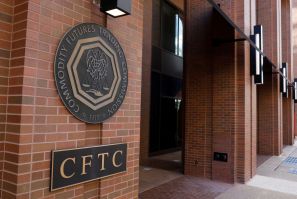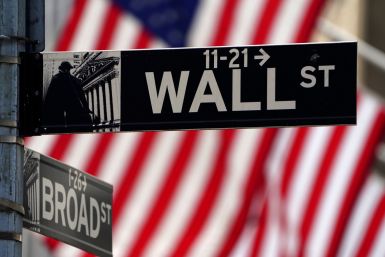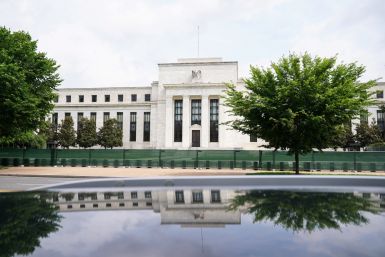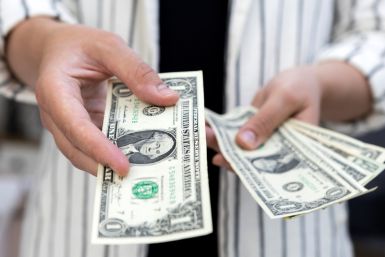In a year of wild market swings, the third quarter of 2022 was a time when events took a truly extraordinary turn.
The copper spot premium in top consumer China could stay elevated in the next few months, analysts and traders said on Friday, as demand for the metal has improved on the back of government stimulus.
Demand for U.S. dollars in the currency derivative markets surged on Friday to its highest since the COVID-19 crisis in 2020 as market turmoil sent investors hunting for cash at the end of one of the most volatile quarters in decades.
South Korean President Yoon Suk-yeol called on Friday for more urgency in dealing with turbulent markets as the won currency's fall to a 13-1/2-year low heightened fears of capital flight.
Britain's economy remained below its pre-pandemic peak, according to data published on Friday that left the country further adrift of other Group of Seven nations and underscored the challenge facing new Prime Minister Liz Truss.
Asian shares on Friday were headed for the worst month since the onset of the COVID-19 pandemic, while jitters in currency and bond markets persisted over hawkish talk from central banks, worries about global recession and rising geopolitical risk.
The bullish S&P 500 forecasts of industry analysts should offer some relief to investors who have been seeing red on the screen in recently.
Japan's factories ramped up output for a third straight month in August, as the manufacturing sector showed resilience amid high material costs and worries about a global economic slowdown.
Global stock markets have tumbled, and major currencies have lost ground against the dollar.
Central banks in Mexico and Colombia on Thursday accelerated their monetary policy hiking cycles to push back against inflationary pressures, even as some policymakers elsewhere in the region look to pause their rate increases.
Oil prices dropped after touching the $90 per barrel mark on Thursday as traders awaited clarity on potential OPEC+ cuts next week and as the dollar eased off 20-year highs.
Belgian motorists are crossing the border into France to fill up on subsidised fuel that costs the Treasury billions of euros and is designed to shield French households from the full inflationary pain felt in some neighbouring countries.
Rising interest rates and a rapidly appreciating currency are exporting the U.S.
The Bank of England's new programme of bond purchases aims to cure market dysfunction, not cap yields or offer cheaper credit to the government or financial institutions, BoE chief economist Huw Pill said.
The financial turmoil emanating from Britain and Japan is not yet enough to prompt the U.S.
German Chancellor Olaf Scholz set out a 200 billion euro ($194 billion) "defensive shield", including a gas price brake and a cut in sales tax for the fuel, to protect companies and households from the impact of soaring energy prices.
This week's plunge in UK financial assets accelerated a longer historic decline signalling a loss of confidence among international investors that Britain may find hard to restore.
U.S. stock indexes slipped on Thursday as worries of a global economic downturn from aggressive central bank rate hikes and risks of potential contagion from a turmoil in UK markets turned investors risk averse.
Spain's government hopes to increase its tax take by 3.14 billion euros ($3 billion) next year with a series of measures including a temporary wealth tax and corporate and capital gains tax hikes, Budget Minister Maria Jesus Montero said on Thursday.
Federal Reserve Bank of Cleveland President Loretta Mester said Thursday she does not see distress in U.S.
The Russian rouble surged to a more than two-month high against the dollar on Thursday, while geopolitical headwinds halted a tentative recovery on stock markets as President Vladimir Putin prepared to annex four Ukrainian territories.
The U.S. economy's recovery from the COVID-19 pandemic was much stronger than initially thought amid massive fiscal stimulus, according to revisions on Thursday, which also showed the gap between the two measures of growth narrowing sharply in 2021.
Euro zone government bond yields rose on Thursday as German data shifted the market focus to surging inflation, while gilt investors resumed selling after the Bank of England (BoE) stepped in to quell a storm the day before.
European Central Bank policymakers continued to line up behind another big interest rate hike as inflation is set to hit a new record high, but differed on whether it was time to think about mopping up cash from the economy.
Sweden's central bank must act robustly to get inflation under control or rising prices could become entrenched, rate-setters said in the minutes of the bank's most recent policy meeting, published on Thursday.
British Prime Minister Liz Truss broke her silence on Thursday following nearly a week of chaos in financial markets triggered by her plans for tax cuts, saying she was willing to take "controversial" decisions to reignite growth.
Thailand will gradually raise interest rates to bring inflation back to target and ensure a continued recovery, the central bank chief said on Thursday, playing down the impact of a weak baht on the overall economy.
If you are feeling the effects of inflation, here is a news flash: Your kid is, too.
Pressure on Indonesia's rupiah is expected to be temporary, a senior Bank Indonesia (BI) official said on Thursday, predicting the currency would strengthen to reflect its fundamental value later in the year.
South Korea's exports likely grew at the slowest pace in nearly two years in September, hurt by a weakening global economy led by China, a Reuters survey showed on Thursday.



















































